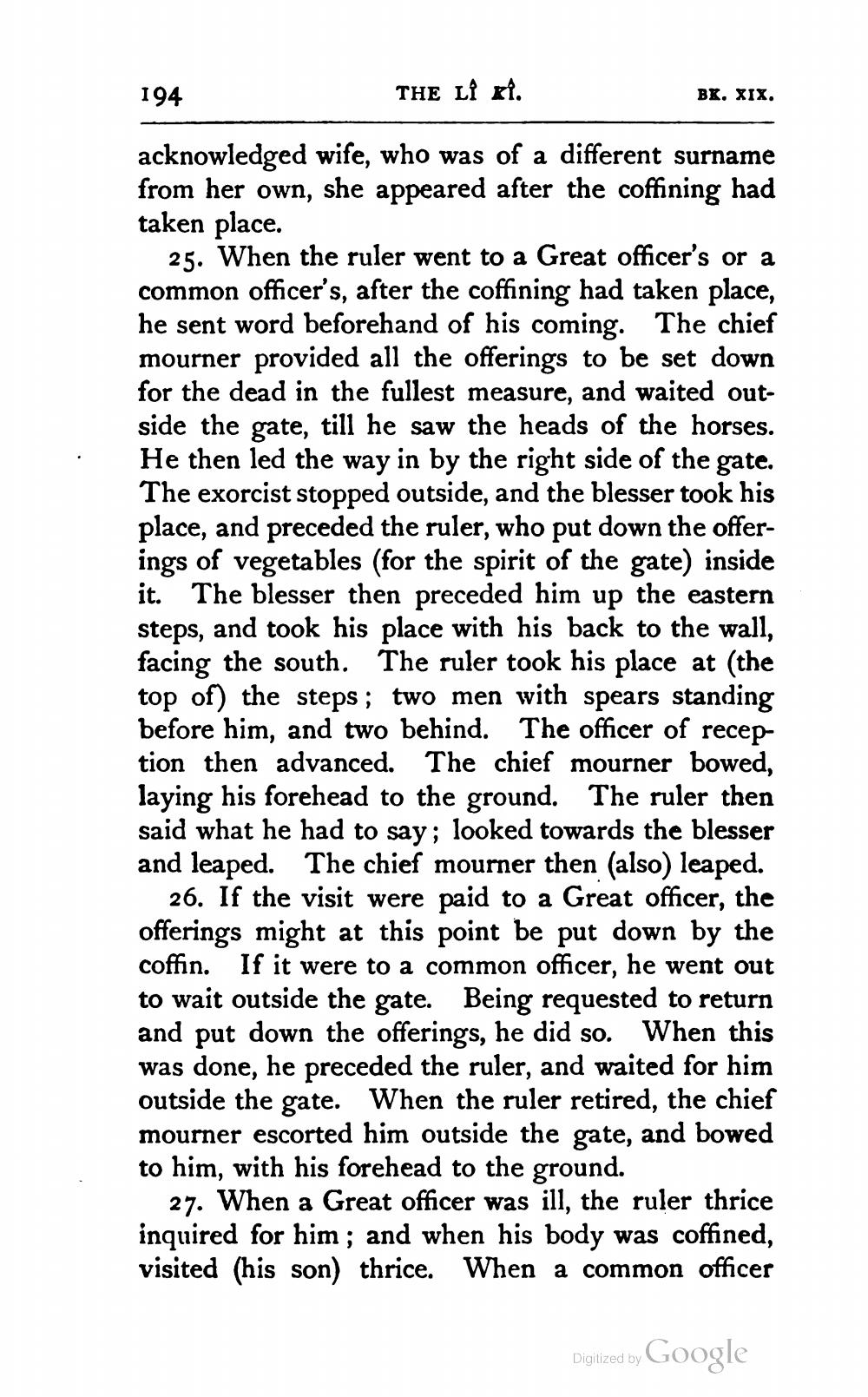________________
194
THE LÎ ri.
BK, XIX.
acknowledged wife, who was of a different surname from her own, she appeared after the coffining had taken place.
25. When the ruler went to a Great officer's or a common officer's, after the coffining had taken place, he sent word beforehand of his coming. The chief mourner provided all the offerings to be set down for the dead in the fullest measure, and waited outside the gate, till he saw the heads of the horses. He then led the way in by the right side of the gate. The exorcist stopped outside, and the blesser took his place, and preceded the ruler, who put down the offerings of vegetables (for the spirit of the gate) inside it. The blesser then preceded him up the eastern steps, and took his place with his back to the wall, facing the south. The ruler took his place at the top of) the steps; two men with spears standing before him, and two behind. The officer of reception then advanced. The chief mourner bowed, laying his forehead to the ground. The ruler then said what he had to say; looked towards the blesser and leaped. The chief mourner then (also) leaped.
26. If the visit were paid to a Great officer, the offerings might at this point be put down by the coffin. If it were to a common officer, he went out to wait outside the gate. Being requested to return and put down the offerings, he did so. When this was done, he preceded the ruler, and waited for him outside the gate. When the ruler retired, the chief mourner escorted him outside the gate, and bowed to him, with his forehead to the ground.
27. When a Great officer was ill, the ruler thrice inquired for him; and when his body was coffined, visited (his son) thrice. When a common officer
Digitized by Google




